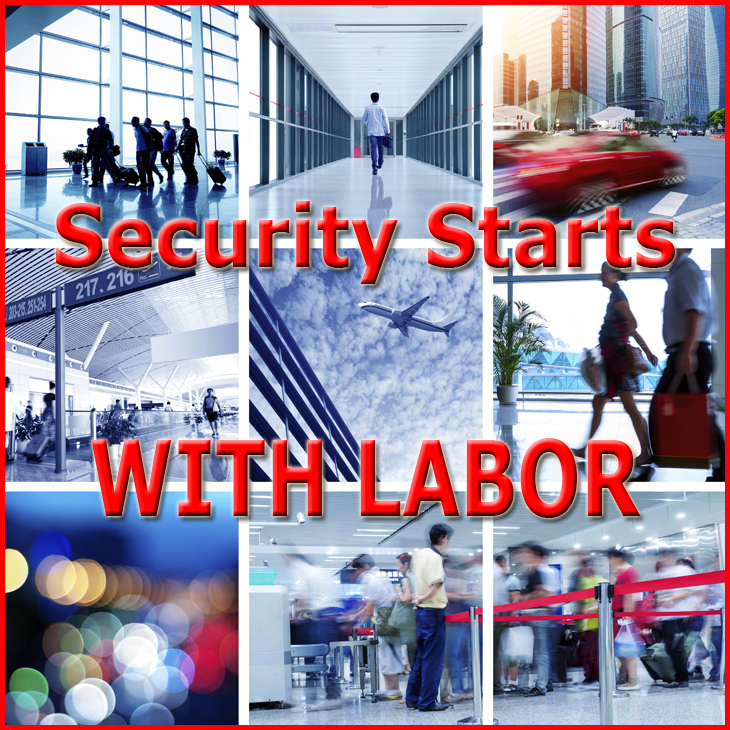| 
Earlier this summer, news
reports said undercover penetration testers were able to overcome security
measures at 67 U.S. airport locations.
The disappointing news included passage
of forbidden items such as IED and weapons having made it past security
to various locations, including aboard aircraft.
You may recall Melvin Carraway, who had
been serving as acting head of the TSA and was hastily “reassigned
other duties.”
But the reality check is that unfortunately,
breaching security may not be all that uncommon.
For example, In December 2014 security penetration
tests undertaken in Frankfurt and other German airports showed similarly
dissatisfactory results.
Apparently every second attempt to smuggle
prohibited items aboard an aircraft was successful. In a report classified
as “confidential,” the EC’s penetration testers said
“insufficient training of security screeners employed by security
service providers” resulted in “inabilities to correctly interpret
the x-ray images of screened baggage.”
In no unclear words, at that time the EC
threatened to classify Frankfurt, Europe’s foremost aviation hub,
as a “non-Schengen airport.” Revoking the Schengen status
for FRA would have seriously crippled German aviation business.
As air transport security measures are mandated
by EC directives, which EC member states must implement into national
law (namely EC Directives 300/2008 and 185/2010), the EC has now sued
Germany for not meeting its contractual obligations before the EC court.
Stay tuned for more news from that dust up.
Greece Issue
Apparent
Elsewhere, Greek air transport workers union
OSYPA pointed to “serious security and safety issues” within
the Greek aviation sector, saying, “the safety of passengers can
no longer be guaranteed under all circumstances.”
The Greek shortcomings, caused at least
in part (it is assumed) by Greece’s dire financial situation and
a draconian regime of cost cutbacks at all costs, mean security checkpoints
may be insufficiently staffed; there is a lack of police, customs officers,
and transport security officers as well as a shortage of fuel, airport
fire engines, and x-ray-machines just as the summer season— Greece’s
major means of income—is in high gear.
Without downplaying the issues present in
the U.S., Germany, and Greece as well as elsewhere, all of this security-related
news seems to have a common denominator . . .
Politics
As Usual?
Political action, strong language, and even
well intentioned organizational blah-blah is just talk, and for some sectors
has not really translated into concrete, forward thinking security improvement.
Something neither regulators nor politicians
will ever admit is that absolute security (as well as absolute safety)
simply does not exist.
A terrorist determined, motivated, smart,
and educated enough to have at least a basic understanding about air security
measures may succeed, especially if he or she is willing to risk his own
death in favor of whatever crude mission goal he or she might have.
No question that a certain minimal risk
is the price incurred for free trade, speech, religion, and expression
of political beliefs.
That certainly does not mean that the shortcomings
identified by the TSA and EC penetration testers as well as other known
security gaps should be ignored in any sense.
Perhaps a better approach in air transport
security should take place at a global level directed by ICAO with the
input of all stakeholders?
Singling out “deficiencies on the
side of security providers,” as the TSA and EC have done, is but
a symptom and not the root cause.
Screeners
Are Underpaid
In times where air travel is cheaper than
ever and affordable to everyone, and where tickets to popular holiday
getaways sometimes come at less than $100, raising airport fees and taxes
is certainly not popular.
But one view is that insufficient training
affects performance of air transport staff in security and safety related
functions directly proportional to their remuneration, job security, and
social recognition of these jobs.
Under EC rules, security screeners must
undergo a background check and receive a 36-hour mandatory training as
well as certain function-specific training and instruction.
It is a safe assumption that terrorists
or other people with intentions to interfere with the safeguarding of
civil aviation will receive a more in-depth training about how to breach
the security measures in place than does the screener who is supposed
to detect them.
The current regime is also inefficient since
funds spent on training are partially misspent because of low social recognition
and salaries of security staff, which are, more often than not, employed
not by airlines, airport authorities, and regulators tasked with the safekeeping
of air transport, but by subcontractors or sub-subcontractors.
In other words, as soon as a better job
opportunity comes up the employee will move on and take his training and
experience elsewhere.
Shortcomings exist also on the regulator’s
side.
The German air transport watchdog, the LBA
(Luftfahrtbundesamt) has faced staff shortages for years.
But while looking for answers, it is thought
that a fraction of the financial and personnel resources dedicated to
securing the Bavarian Elmau luxury retreat for the G7 summit held in early
June 2015 would have covered forthrightly and effectively the majority
of air transport security in Germany, at an estimated cost of about 210
million Euros (U.S. $236.5 million).
While apparently there is no restraint in
commanding 17,000 police officers to secure an offsite location in spite
of existing secure governmental property, air transport security screeners—the
frontline of aviation security—are expected to perform for minimum
salaries, which were moved up in Germany at 8.50 Euros (U.S. $9.57) per
hour effective January 1st, 2015.
The average salary of a security screener
in the U.S. is $13.57 (12.02 Euro), with about half of the workforce without
benefits such as medical coverage.
Jens
|





